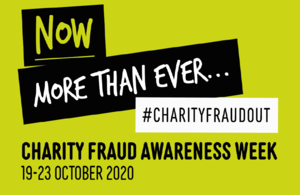Extra support for councils to expand services for domestic abuse victims and their children
- £6 million for councils to prepare for new domestic abuse duty
- Councils will have a duty to provide support for victims of domestic abuse
- New funding will help councils train staff and plan for accommodation and support services
Extra support will be given to councils to help them to prepare for the introduction of landmark legislation that will ensure domestic abuse victims and their families get the vital help they need has been announced today (5 October 2020) by Minister for Rough Sleeping and Housing Kelly Tolhurst MP.
Thousands more people are expected to be helped from April 2021 when the new law comes into force placing a duty on councils to support victims of domestic abuse.
Once the duty comes into forces, the new £6 million funding announced today will mean that councils in England can commission additional vital support for those victims of domestic abuse and their children who might currently be turned away from refuges and other safe accommodation because their needs cannot be met.
The Domestic Abuse Bill, currently before Parliament, includes a new duty for councils to assess and provide support and safe accommodation to victims and their children in England.
This new funding will mean councils can plan accommodation and specialist services ahead of the Act coming into force and ensure that in all areas across the country services are joined up.
Councils can prepare by linking in with other agencies such as police or health commissioners and ensure their staff receive training in the new duty.
Domestic abuse is a devastating crime which creates long term impacts on victims, their children, and wider society. The government has committed to transforming the response to domestic abuse so victims and their children receive the support they need when they need it.
Minister for Rough Sleeping and Housing Kelly Tolhurst MP said:
Survivors of domestic abuse need safe refuge in order to escape this heinous crime, and support to start to rebuild their lives.
Councils already provide much needed support, but the landmark Domestic Abuse Bill will mean for the first time councils will have a duty to provide support in safe accommodation for anyone fleeing abuse.
The funding I am announcing today will help councils prepare for this new duty that will see thousands more survivors helped and a generation of their children able to grow up safely and free from fear of abuse.
We have committed to supporting all domestic abuse survivors. That’s why since 2014 we’ve invested £80 million in safe accommodation services to support victims of domestic abuse.
In April, the Home Secretary announced £2 million to ensure helplines and online services continue to be easily accessible to victims, during the coronavirus pandemic.
This follows the appointment in September 2019 of an independent Domestic Abuse Commissioner to lead on driving improvements in the response to domestic abuse in the UK, putting victims at the heart of the response.
The funding is part of a raft of measures designed to help support councils meet their new obligations. To further help councils prepare, the government has today published guidance on the fund’s purpose and is providing councils with further information and support.
The government’s £10 million emergency fund, already announced, is supporting domestic abuse victims and their families during the pandemic, helping to provide over 1,500 new beds and re-open 344 bed-spaces. This is part of a wider £76 million package of government support for the COVID-19 emergency response.
In addition, a consultation has been launched today on how the new burdens funding associated with the new duty should be allocated in order to enable councils to meet their new duty.
Councils need to be ready for this new duty and the government is consulting with them on the best way to allocate funding from April 2021 to ensure they are able to meet their new obligation.

